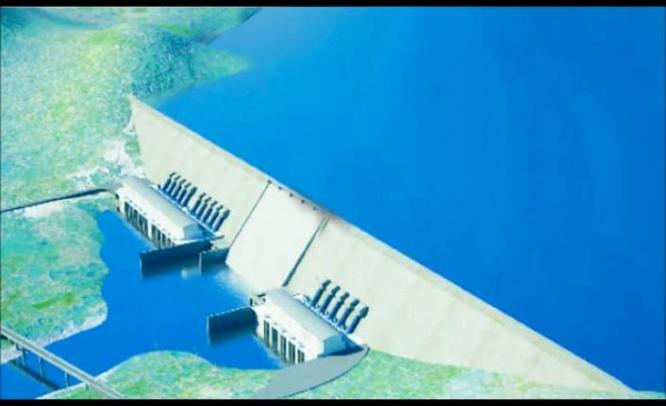In a rather brazen statement Egyptian President Mohamed Morsi said he would protect Egypt’s water security at all costs including possible military action to blow up the dam.
16th June 2013
International Finance Magazine gives you the story on the Nile water sharing dispute, loss of forest cover due to non utilization of hydro electric power from the river and Egyptian President’s brazen statements of waging a war for construction of dam by the Ethiopian government.
Ethiopia’s Parliament on Thursday ratified an old agreement that replaces colonial era deals that awarded Egypt and Sudan majority share of the world’s longest river. The agreement comes into place at a time when Egypt and Ethiopia are crossing swords over the share of water. Egypt is allaying fears that the dam will reduce its share of Nile, which is the only source of water to the desert nation. Ethiopia last month started to divert Nile waters for a massive $ 4.7 billion hydroelectric dam which is called The Grand Ethiopian Renaissance Dam. The project is being undertaken by Ethiopia due to a severe power shortage in Ethiopia which is hampering its growth.
Egyptian President Mohamed Morsi is considering all options to derail the project including sabotage of the dam. Ethiopia has dismissed the threat of military action as “psychological warfare”. Cairo is worried that by building the dam it will reduce the water supply for its 84 million people. The Nile River Co-operative Framework Agreement has already been signed by other Nile basin countries such as Rwanda, Tanzania, Uganda, Kenya and Burundi.
Ethiopian Prime Minister Hailemariam Desalegn responded on Tuesday and said “no one” can stop the dam’s construction. The head of African union Nkosazana Dlamini Zuma urged to settle the issue amicably through peaceful and meaningful dialogues. Earlier an expert panel concluded that the dam will not significantly affect the water flow to Egypt and Sudan. Sudan has accepted the outcome of the findings and announced that it will support Ethiopia’s project. The 547 member Ethiopian parliament has already endorsed the agreement.
Entebbe Agreement
The accord known as the Entebbe Agreement is the result of decade long negotiations. It was conceived to replace the 1929 treaty drafted by Britain that awarded Egypt ‘veto’ power over upstream countries Nile projects. Sudan and Egypt signed a deal in 1959 sharing Nile river waters among them without giving other countries due consideration. Egypt had previously said that it will accept most of the new agreement. However, it opposes a clause saying member countries would work to ensure “not to significantlyaffect the water security of any other Nile Basin State”. Egypt wanted the clause to say countries would not “adversely affect the water security and current uses and rights of any other Nile states”. Alemayehu Tegenu, Ethiopian Minister of Water and Energy told the Parliament that Ethiopia had made two bold decisions concerning the dam. The first one was to postpone the ratification of the agreement until a formally elected government was in place in Egypt. The second was to allow experts from Sudan and Egypt to inspect the Renaissance Dam. He said no other country would allow co-operation to such an extent. He further opined that Ethiopia could not wait any further and went ahead with the ratification of the agreement.
The technical analysis done by experts from the Nile bordering nations has said that the dam being built by an Italian firm will not have a negative impact on the on the river’s water levels to the downstream nations.
The project has found support from Uganda. Uganda’s President Yoweri Mueveni said in a statement that Ethiopia and other African nations needed such major infrastructural projects to spur their economies. He described the statements made by the Egyptian President as ‘chauvinistic’. He also said “The Egyptians think that the threat of the Nile is building dams on it. However, the biggest threat of the Nile is the continued underdevelopment of countries in the tropics. The Ugandan President was referring to the loss of forest cover that the upper stream riparian countries suffer from as a result of not utilizing the Nile to build hydro power dams to provide cheap and eco friendly electricity.
– See more at: http://www.internationalfinancemagazine.com/article/Ethiopia-Ratifies-River-Nile-Agreement-Despite-Opposition-by-Egypt.html#sthash.mXR5GUIM.dpuf

